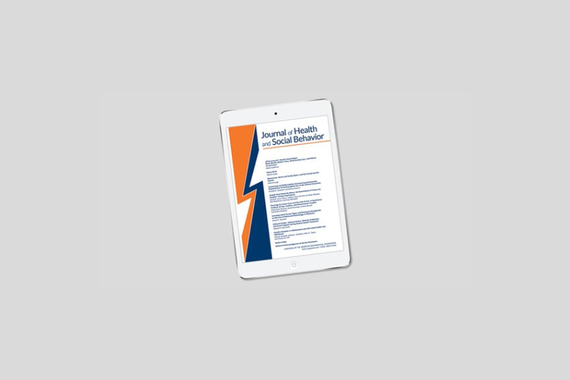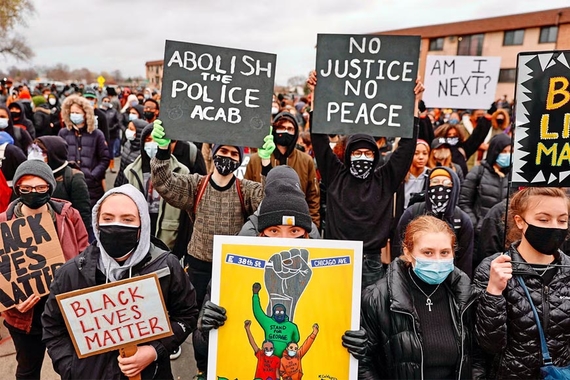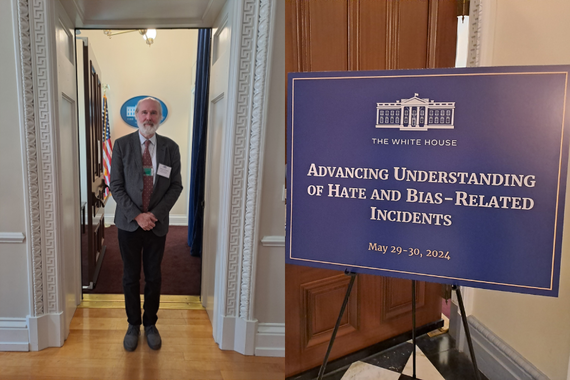Meet Our Students: Monica Miecznikowski
Major: Sociology of Law, Criminology, and Deviance BS with a Sub-Plan of Quantitative Emphasis
Minor: Psychology

Why did you choose to major in sociology? Was there a specific experience that helped you decide soc was the major for you?
Graduating high school I was undecided about whether I wanted to major in sociology or psychology, but I knew I wanted my major to have a focus on law.
My first year I took intro to psych and soc, and immediately fell in love with the sociology department. Not only did the department have a specific major for those wanting to connect sociology with law, but they also had a variety of courses that could be taken to explore the field deeper and broader.
I was also drawn because of the faculty in the sociology department. When I say they care about their students, it’s not a cliche. The professors regularly encourage students to come to office hours to just chat even if they don’t have specific questions about the course.
I think the best way to sum it up would be when a professor told me he took the job at the U because compared to the other colleges, the faculty in the Minnesota sociology department focused on teaching, not testing their students. I couldn’t agree more, the faculty want the students to learn and explore, not just meet requirements to fulfill a grade.
Have you had any study abroad, internship, and/or research experience with a soc faculty member? How has that experience shaped your future career goals and your understanding of what you’ve learned?
My junior year, I chose to do an independent research project with the direction of a professor in the department. I did my research with Professor Evan Roberts and it was the best decision I could have made.
Our research was on causes for the rising trend of obesity. We focused on the years between 1914 and 1940 because that period encompassed the major occupational shift from manual labor to sedentary work. While there is a lot of research on how the rise of fast food is correlated with obesity, there is little research on the effects of transitioning to sedentary occupations. My project allowed me to utilize the research and statistical methods that I learned in the sociology department as well as explore the additional concepts learned in my graduate-level stats class.
Additionally, it was an opportunity for me to apply all the concepts I had learned throughout the years from the sociology department, as well as influence future sociological research. Our research paper is currently under review for publication in the Journal of Biosocial Science and earned me the Sociology Undergraduate Research Award for 2019
How does a major in sociology help you reach your post-graduation goals?
In my undergraduate career, I have struggled to decide whether I wanted to pursue a career in law or math. While these seem like very different concepts, the sociology department has been able to greatly link the two subjects in a manner I don’t believe I could have gotten anywhere else without double majoring.
The department taught me about the complicated relationships between law and society and prepared me for law school where I shall approach my law studies with a functionalist perspective rather than conflict.
Additionally, the department has shown me that the legal field can greatly benefit from statistical research, such as the accuracy of certain types of evidence and the financial burdens of the death penalty. I have learned that I can not only practice law but also simultaneously perform research that is intended to improve the legal system, making it more efficient and just.
What advice would you give to someone who’s interested in declaring a sociology major?
My advice would be to take Soc 1001, go to office hours, and go to the advising office. Even if you decide not to major in it, it’s not going to slow down your graduation date in another department. It’s a great way to get an overview of the department and meet wonderful faculty.
I also recommend looking up the professors in the department online and seeing what their specialties are and if they are doing research. The faculty have a wide variety of sub interests within the field of sociology and you are bound to find a professor who has a similar interest as yourself.
Have you worked while in school? How has balancing work and school impacted your path to earning your degree?
During my time at the U, I have worked part-time, as a research assistant in a neuroscience and law lab. I was also a teaching assistant for social statistics and introductory physics, cleaned datasheets for a sociology researcher, physically cleaned a research lab, and managed a University band.
All that sounds like a lot, but I never did more than three jobs at a time, usually two, and it never exceeded 20 hours a week. I believe the most difficult thing for me was to be realistic about how much time I had in a day. Whenever I was going to take on a new job, I always made sure there was a course or extracurricular activity that I could drop within the first couple weeks of the semester in case I had piled too much on my plate.
I also planned my semester schedules in advance so I knew what classes I could drop and still stay on track for graduation. It also helps if the work you do is related to your major so it doesn’t feel like work. Regardless I think the key to graduating in the desired amount of time is to be realistic about how much time you need to study and then plan work around that.


